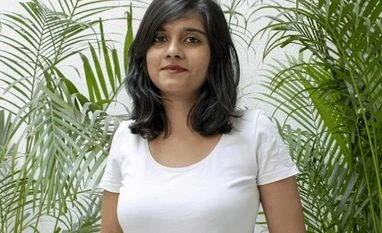"I pick projects that have the highest chances of failure. But if that work, they can set a precedent and change cultural behaviour," reads the opening line of 27-year-old Kalyani Khona's LinkedIn profile. There's no better way to describe her attempt of Inclov—the world's first matchmaking platform for differently-abled people.
Soon after finishing her under graduation, Kalyani Khona, who was then 19, set out on a three-month internship to teach underprivileged kids in the Amazon region of Brazil when all her classmates were planning for the convocation.
This was one of the 20 internships that she took in as many months to find her calling. That was between 2012 and 2014, with other assignments including handling finance at HSBC, and a stint as a PR executive.
In late 2013, after doing some primary research, she discovered that there was no dedicated matchmaking site for the disabled — and India is home to 100 million such people. Kalyani realised mid-way into her internships that she was better off on her own, business or otherwise, than in a stifling 9-to-5 corporate job.
That feeling of independence sparked the idea to start ‘Wanted Umbrella’, an offline marriage bureau based in Mumbai. “I saw this large minority group that was being underserved and the problem-statement was that they were socially alienated," said Khona. "I wanted to bring the community together through a hook, which was matchmaking."
The amount of paperwork involved in manually keeping track of people's preferences, and their complaints about the lack of choices subsequently led the need to spin the service into a digital dating app.
In 2016, Khona raised Rs 6.15 lakh from over 140 backers on a crowdfunding platform. That was how Inclov started, founded by then 23-year-old Khona with her college friend Shankar Srinivasan. It was around the same time when Tinder began its India operations and three years before Bumble had burst into the national scene.
In less than four years, the app brought together a community of 60,000 users across the country, enabling conversations between 20,000 people and hosting around 100 meet-ups under its 'Social Spaces' banner in around 40 cities. However, it had to wind up operations in January this year. The Mumbai-based start-up faced a dire financial situation in its final days, according to its website. Khona says there are few other reasons why the venture's success was cut short.
"I think Inclov was way ahead of its time. We did not develop a market incentive to continue and scale it further. The larger part of the market did not care beyond a point, as it was not affecting them," she said." “Analogically, it is similar to hygiene or healthcare, which has gained sudden importance only after the Covid-19 outbreak."
Inclov also catered to a niche audience like differently-abled people and it was for the first time a social product was launched for such a fragmented market in the country where acquiring a 50,000th customer is as difficult and costly as acquiring the first. The plan of taking the initiative global also did not take off as western societies were a lot smaller and their audience did not see a need for a dedicated app. "I spent sufficient time in New York and London, and realised disability found more acceptance in those societies. They either went to bars or used normal sites like match.com and, most important of all, they knew people with disability," said Khona.
Relationships were only No. 4 or No. 5 priority on their minds, unlike India. The saturation point in user numbers also spilt over to the financial side of the start-up.
Inclov also tried its luck in allied services like personal care and nursing, but there were far too many healthcare start-ups in that space already. "We had just four months of runway left so we did not have enough time, money or energy to plan another pivot."
And, the team also turned down a few takeover offers as it felt the user data was disclosed with trust and had a chance of abuse or misuse. "You’d rather let it close on a note that people remember you for the impact than taking bad blood on yourself in the course of making money."
Here is Khona's shout-out to the entrepreneurs who plan to start afresh, based on her experience. “Pick up a problem that can receive continuous nudges in the society at large to sustain in the long run. Pivot it to allied services at the right time when the current scheme of things don't work out and go for an idea that can be scaled up easily.”
Khona is currently working as a product strategist with a fintech start-up in Mumbai. But who knows, it may be just matter of time when the fiercely independent young entrepreneur may come up with another interesting idea.
Unlock 30+ premium stories daily hand-picked by our editors, across devices on browser and app.
Pick your 5 favourite companies, get a daily email with all news updates on them.
Full access to our intuitive epaper - clip, save, share articles from any device; newspaper archives from 2006.
Preferential invites to Business Standard events.
Curated newsletters on markets, personal finance, policy & politics, start-ups, technology, and more.
)